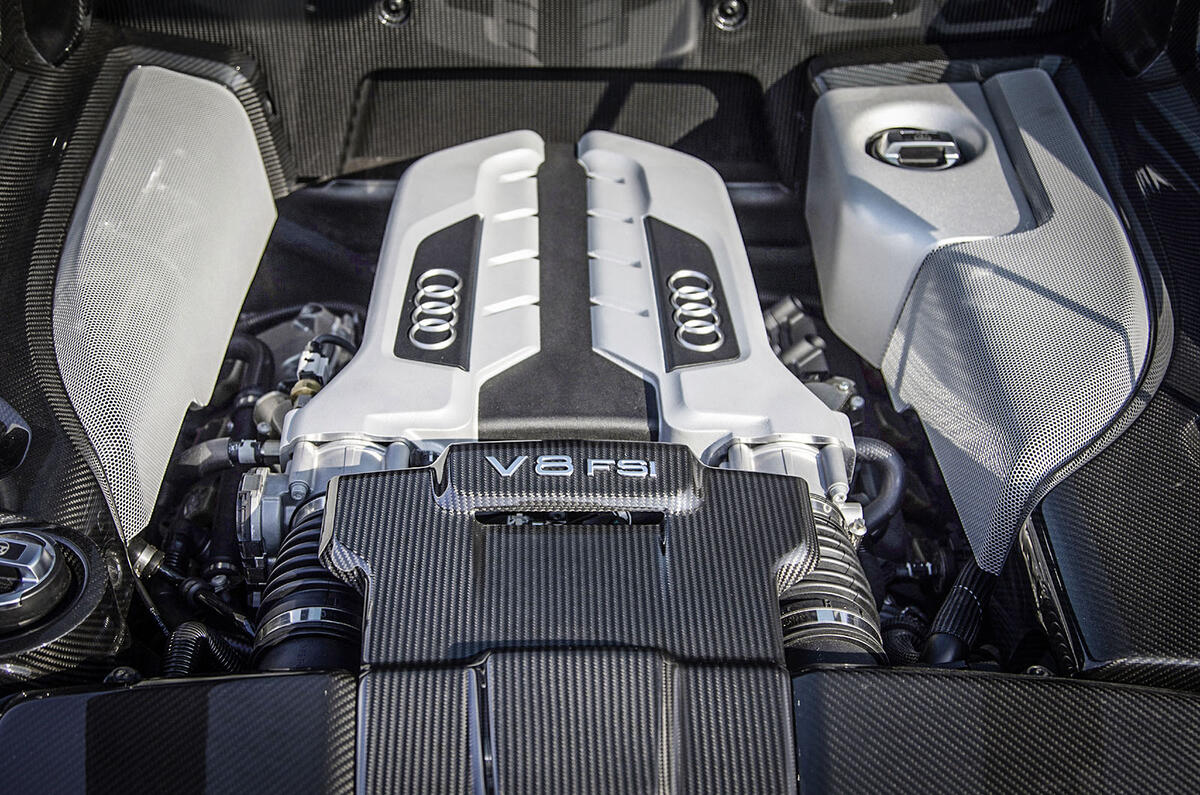The all-new V8 designed by Audi for use in the wider VW Group may be the last of its kind, a company source has told Autocar.
The source said another all-new V8 engine family is unlikely because of the shift in investment towards all-electric and hybrid powertrains planned for the future by Audi bosses.
The source said: “By 2025, the plan of Audi management is to have between 25% and 35% of Audi’s output as battery-electric vehicles.
“It would be very difficult to justify the huge investment in another new V8 because of the cost of developing electric drivetrains and battery packs. You have to ask what is the best use of investment money.”
The new V8 engine has just made its debut in diesel form in the Audi SQ7, where it is equipped with two conventional turbochargers and an electric ‘blower’ that spools the turbochargers up to operating speed regardless of the engine speed.
The engine will also be produced in petrol form for future Audi, Bentley and Porsche models.
The VW Group source said engineers are particularly pleased with the V8 diesel installation in the second-generation Porsche Panamera, describing the upcoming model as “really, really impressive”.
Global fuel economy regulations are putting pressure on the V8 engine as a concept. As a result, many car manufacturers are looking to downsize to V6 powertrains or even, in the case of Volvo, producing only four-cylinder engines and using hybrid electric drive to deliver extra performance when the driver wants it.





Join the debate
Add your comment
Lifetime carbon emissions, Petrol vs Electric.
www.wired.com/2016/03/teslas-electric-cars-might-not-green-think/
Don't batteries just move the
Winston Churchill wrote: Don
Yes they do. Whilst simultaneously having a disastrous effect on practicality. The mass of the people will not fall for it and petrol will remain the best source of automotive power. Electric cars are going nowhere.
bowsersheepdog wrote: Yes
Once electric cars can get to about a 200+ mile range they will be suitable for most people. And in fact they will be more practical as people will almost always just recharge overnight at home and never have to visit a petrol station.
You may not want to admit it, but electric cars are very much the future.
Actual answer
Not exactly. When NOx/CO/PM are moved off the roads, they stop being a health hazard, unless you live near to a fossil fuel power station (even then - oil refineries produce that stuff too, and renewable energy doesn't).
Greenhouse gases vary depending on energy source, but the UK average grid mix delivers ~72g/km CO2e for a typical EV. Even a Prius emits just under twice that when you factor in refining and fuel shipping. If you charge from your own solar/wind, or use a renewable energy provider, you're essentially running a giant high-speed bicycle.
There are a few case studies out there, though you can do most of the calculating yourself. I can't post links because it triggers the spam filter, but they're the top entry for these Google searches: "ford lg cradle to gate", "ucla battery electric lifecycle", "renault fluence lifecycle". Ordered from newest to oldest.
Clearly we've reached a
Electric commercial vehicles
Most commercial vehicles from transit type vans to antics need to be capable of being driven all day and so far there is no sign of any battery bring capable of managing that. If you fitted a huge battery pack regardless of the cost problems the weight would reduce the vehicle payload as well further adding to costs. Remember commercial vehicle are all about the economics of buying and running them with logistics companies running on wafer thin profit margins in a very competitive environment.
Campervan wrote: Most
There are very few electric vans at the moment, but the Nissan E NV200 electric van actually has a greater payload than the NV200. It can do about 100 miles of range which will be suitable for a lot of urban delivery routes, and the savings of road tax, fuel, London Congestion Charge are making it compelling. Here in London you see a lot of them, and they are fairly new to market.